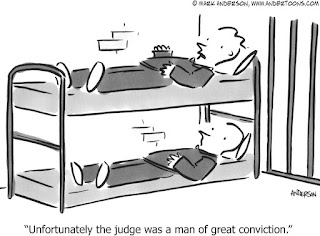Richard Dusterhoft is the type of person who irritates me. Not only did I catch him red-handed obstructing justice but he just kept doubling down on crime once caught.
Late last year Dusterhoft left is job as director of the criminal division at the Ramsey County Attorney's Office. Why? Was it because he didn't want to work in an environment where crime was not only regularly committed but regularly covered up? Sort of. But not crimes committed by the prosecutors office. He left because of "his frustration with policies he says are designed to keep offenders out of jail."This is the same guy who as criminal division director at the Ramsey County Attorney's Office told me, in writing:
"You specifically suggest that your ex-wife’s attorney committed “fraud upon the court” and mention there is no statute of limitation on such a crime. That is probably because there is no such crime in Minnesota. A person could be held in contempt of court by a judge. Absent that, there is no other similar charge."
The U.S. 10th Circuit Court disagrees:
"Fraud upon the court is fraud which is directed to the judicial machinery itself and is not fraud between the parties or fraudulent documents, false statements or perjury. ... It is where the court or a member is corrupted or influenced or influence is attempted or where the judge has not performed his judicial function --- thus where the impartial functions of the court have been directly corrupted."
Dusterhoft not only ignores crime committed by lawyers, he believes they are immune to fraud, at least when committed upon the court.
His statement that he left the county attorneys office because it was too soft on crime wins the award for the most two-faced, disingenuous statement of the year.





